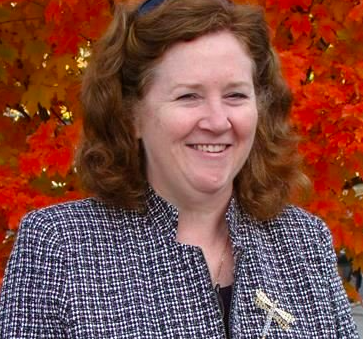One thing is certain in education: things are always in flux. From implementation of a new curriculum to staff turnover to new state or federal requirements to a pandemic that calls on everyone to innovate on the spot over and over again, the educational landscape is full of complexity.
What does it take to maintain a relentless focus on equitable student outcomes for the long term, especially in turbulent times?
Westerly (RI) Public Schools (Westerly) has partnered with CLEE over several years to focus on adult professional learning that supports high and equitable outcomes for all students. CLEE developed a multi-tiered strategy working with Westerly district leadership, department heads and deans of teaching and learning to provide coaching and mentoring, utilizing Instructional Rounds and Cycles of Improvement.
Michelle Li, CLEE’s Director of the Learning Leader Network, speaks with Alicia Storey, Westerly Public Schools Assistant Superintendent to learn more about Westerly’s journey. Responses have been edited and paraphrased for clarity.
How has working with CLEE impacted your thinking about equity in Westerly Public Schools?
It has been powerful. It’s been slow and steady, and it’s gotten everyone to look at the data more, which is what we as a district needed to do in order to continuously improve. People may have had certain beliefs, and when they started to look at the data, they had aha moments like, “Oh wait a minute, you know, this is actually the reality. This is what it’s telling us.”
Something I’ve heard you say over the last few years is that no matter what the crisis is, this is still the important work that needs to be done. Can you say more about that?
Education is a human endeavor, so things don’t always happen quickly. If we’re looking at reaching all kids and giving all kids a decent education, then there are a lot of pieces to that. I can’t get caught up in the negative. I focus on what is in front of me, on the positives, on what we can do to improve, and on getting to improvement. So when I hear that my teachers need some additional learning and they need to be supported in that, then I need to support them so we can get to where we need to be. All humans have blind spots. And the science piece of me says, you know, just keep on going back and looking at what the data is telling us. We’re going to keep on plodding along. It’s a journey. It’s going to change a little bit, but you just keep focused on what’s most valuable. And to me the kids are the most valuable, so you have to keep on looking at the data to see what’s happening with the kids in front of us. Quite frankly, in the pandemic, this is even more important.
How have you transformed as a leader as a result of this work?
I think I listen a whole bunch more. As a teacher, I always listened to the kids, but that just seemed natural. When you go into administration, many people look to administrators for answers. And human nature is like, Ok I’ll find that answer for you. And what I’ve learned is, I don’t just give people the answer anymore. I ask questions. But you don’t want to push people over the edge, you want them to have a little struggling in their zone of proximal development. You have to have that struggle, that tension, in order to grow.
What would you say to someone who’s thinking of engaging in this kind of work in a school or a district?
It is worth working for. And that doesn’t mean it’s easy. You have to inspect things to improve them. In education you have to build capacity on all levels. If you have initiatives that leaders do and then the leader leaves and the initiative dies, then the capacity wasn’t achieved. You have to build capacity within the people to make something stick. It takes time because the players change too. The same people will not be in the same role all the time. You have this flux. I would equate it to a Briggs-Rauscher oscillating reaction in chemistry. The reaction has gradual and sudden periodic changes which are visible via a color change, demonstrating a combination of complex slow and fast reactions happening simultaneously. Over time the reaction becomes less reactive and the color remains consistent.

What I would tell people is if you want real change, it’s going to take time and capacity. And patience.
To learn more about the CLEE services Westerly leaders have benefited from Click here.
